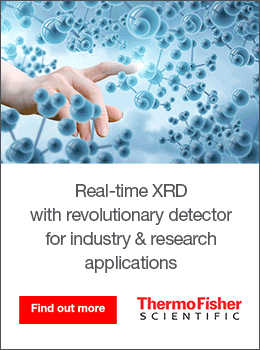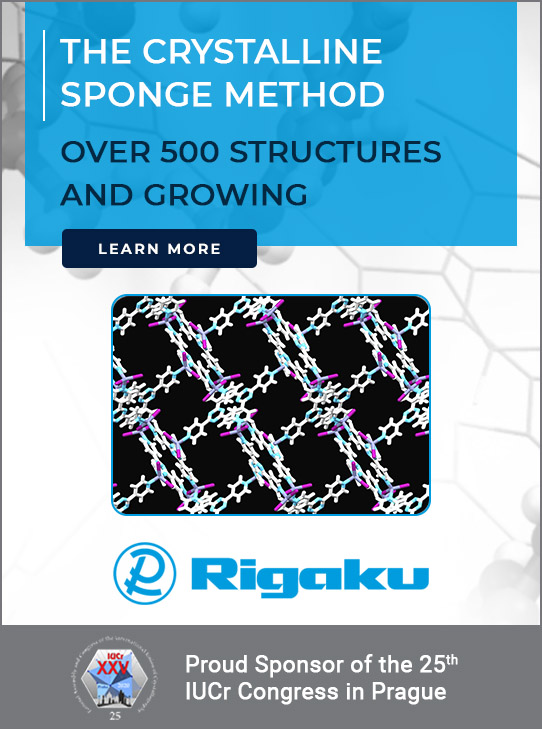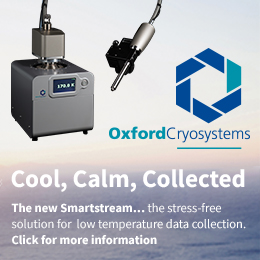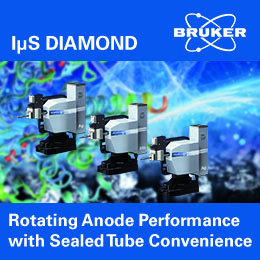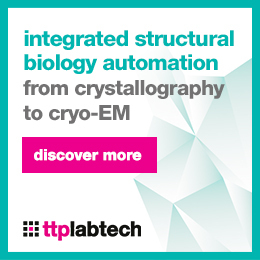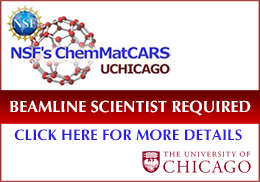


Meeting report (IUCr supported)
Hot Topics in Contemporary Crystallography 4
![HTCC4presenters [HTCC4presenters]](https://www.iucr.org/__data/assets/image/0011/146396/HTCC4presenters.jpg)
Presenters of the discussion-triggering presentations (l–r): Romualdo Troisi, Christine Touma, Nives Ivić and Vera Pfanzagl.
The fourth workshop Hot Topics in Contemporary Crystallography (HTCC4) held in Mlini, Dubrovnik, Croatia, 1–6 October 2019, was organized by the Croatian Association of Crystallographers and generously supported by Bruker AXS, JEOL and S.C.A.N. d.o.o. (golden partners), Aparatura d.o.o., Formulatrix, Rigaku, Dectris, Crystals, MiTeGen, the Croatian Ministry of Science and Education, the Croatian Academy of Science and Arts, the IUCr and the European Crystallographic Association. HTCC4 was entirely dedicated to structural biology with the programme comprising four hot topics on techniques and methods that go beyond classical crystallography: (i) XFEL (X-ray free-electron laser) (HT1), (ii) cryo-electron microscopy (HT2), (iii) nuclear magnetic resonance (NMR) in macromolecular structural research (HT3) and (iv) biomolecular in-silico simulations (HT4). Each topic was presented and discussed through an intense full-day programme of lectures and hands-on sessions conducted by the leading experts in the field.
HT1: Structure determination using XFEL (2 October 2019)
1. Henry Chapman, Center for Free-Electron Laser Science DESY, University of Hamburg, Germany.2. Saša Bajt, DESY Photon Science, Hamburg, Germany.
3. Thomas White, Center for Free-Electron Laser Science DESY, University of Hamburg, Germany.
HT2: Cryo-electron microscopy (3 October 2019)
4. Jürgen Plitzko, Department of Molecular Structural Biology, Max Planck Institute of Biochemistry, Munich, Germany.5. Carrie Bernecky, Institute of Science and Technology (IST) Austria, Klosterneuburg, Austria.
HT3: Protein structure determination by NMR (4 October 2019)
6. Oliver Zerbe, Department of Chemistry, University of Zurich, Switzerland.HT4: Biomolecular simulations (5 October 2019)
7. Franca Fraternali, Randall Centre for Cell and Molecular Biophysics, King’s College, London, UK.8. Chris Oostenbrink, Institute of Molecular Modeling and Simulation, University of Natural Resources and Life Sciences, Vienna, Austria.
The programme was additionally enriched with three invited lectures given by Zoran Štefanić (Ruđer Bošković Institute, Zagreb, Croatia) “Molecular visualization: scientific art and artistic science”, Udo Heinemann (Max-Delbrück Center for Macromolecular Biology, Berlin, Germany) “Crystallographic Studies of Nucleic Acid Sequence Readout by Proteins” and Areej Abuhammad (School of Pharmacy, University of Jordan, Jordan) “Structural studies on carbonic anhydrases: a crystal story from Jordan“ as well as short presentations by the sponsor representatives: Yusuke Nishiyama (JEOL), Marcus Winter (Rigaku), Sacha De Carlo (Dectris) and Guillaume Brunetti (JEOL).
HTCC4 in numbers
Altogether, HTCC4 had 58 participants: 30 students, 9 lecturers, 7 organizers (two of them were also lecturers), 7 sponsor representatives and 7 accompanying persons. The participants came from 17 countries: Croatia (14), Austria (9), Germany (9), Slovenia (4), Switzerland (3), UK (3), Italy (2), Poland (2), Russia (2), Sweden (2), South Africa (2), Spain (1), France (1), Finland (1), India (1), Jordan (1) and Japan (1). The overall gender distribution of the participants was 45% female and 55% male.![[HTCC4 group photo]](https://www.iucr.org/__data/assets/image/0007/146455/HTCC4group.png)
Discussion-triggering presentations and best poster award
The HTCC4 programme contained two sessions intended especially for young participants to encourage them to present their research: discussion-triggering presentations and a poster session. Based on the quality of the submitted abstract, the potential of the abstract to trigger high-quality discussion as well as the scientific background, four young participants (PhD students/postdocs) were selected to deliver short presentations:
1. Vera Pfanzagl (University of Natural Resources and Life Sciences, Vienna, Austria): “X-ray induced reduction of heme metal centers is protein-independent – implications for structural studies of redox sensitive proteins”
2. Christine Touma (University of Oulu, Finland): “Using nanobodies against CNPase as a crystallisation tool”
3. Nives Ivić (Ruđer Bošković Institute, Zagreb, Croatia): “Cryo-EM structure of the Imp7:Impβ:H1.0 complex”
4. Romualdo Troisi (Università di Napoli Federico II, Italy): “Human alpha-thrombin modulation by oligonucleotide aptamers: a molecular dynamics study”
The poster session contained 18 presentations, which were displayed during the entire duration of the workshop. The presented posters covered various topics within the field of structural biology. The Crystals best poster award, which focused on excellence in research, clarity of presentation, personal knowledge and understanding of the matter, was given to Radoslaw Pluta (Barcelona Institute of Science and Technology, Spain) for his work on “Structural basis for DNA recognition by FoxH1 pioneer transcription factor“ authored by R. Pluta, E. Aragón, J. Cordero, P. Martin-Malpartida, L. Ruiz and M. J. Macias. The prize consisted of a certificate and an opportunity to publish a paper in Crystals or in the joint Special Issue with HTCC4 free of charge.
![[HTCC4posterwinner]](https://www.iucr.org/__data/assets/image/0003/146397/HTCC4posterwinner.jpg)
IUCr sponsorship
The IUCr generously supported HTCC4 enabling the Organizing Committee to allocate 11 bursaries to the utterly motivated students. All of them expressed their appreciation for the IUCr Young Scientist Awards bursary and stated their benefits from attending HTCC4. Some of their personal statements are given below.
Radoslaw Pluta, PhD student, Barcelona Institute of Science and Technology, Spain: “The IUCr Young Scientists Awards bursary that supported my participation in the Hot Topics in Contemporary Crystallography 4 – Structural Biology workshop gave me the excellent opportunity to learn from the top scientists in X-ray free-electron laser (XFEL) crystallography, single-particle cryo-electron microscopy (cryo-EM), cryo-electron tomography (cryo-ET), NMR in macromolecular structural research, and biomolecular in-silico simulations. The examples of particular systems studied with the presented methods and round table discussions helped me understand the complementarity between these methods and classical crystallography in contemporary research. By presenting my findings on the structural basis of DNA recognition by the FoxH1 pioneer transcription factor to the international scientific community I could engage in the exchange of ideas with both young and senior researchers and build networks with experts in complementary fields. Overall, this experience was valuable for the development of my career as a young independent researcher. Finally, I was happy to share the knowledge I grasped with my lab mates and colleagues at my Institute.”
Romualdo Troisi, PhD student, Università di Napoli Federico II, Napoli, Italy: “Receiving the IUCr bursary, which covered my accommodation costs, was very important for me. I could hardly have sustained the entire expense, considering the few funds available for PhD students in Italy. This course has been a great and unique opportunity to expand my knowledge in the field of structural biology, learning more about techniques that I do not currently use in my research activity and expanding my knowledge in the field of molecular dynamics simulations. Furthermore, it was very useful to present part of my work in the discussion-triggering presentation. It was my first oral presentation at an international conference. Thank you very much.”
Aleksandra Maršavelski, research associate, University of Zagreb, Croatia: “Attending HTCC4 was beneficial to me because I got detailed insight into structural methods NMR and cryo-EM. Namely, structures of many bio(macro)molecules that I use in my daily work are solved by using these methods. Therefore, being introduced to limits and pitfalls as well as advantages of these methodologies helped me to better understand the process of obtaining the structures. The most beneficial to me was a day dedicated to biosimulations. More precisely, interaction and discussion with Professor Oostenbrink helped me with my ongoing project and how to deal with one specific problem related to the relevancy of two possible rotamers of tyrosine.”
Ana Pavić, PhD student, University of Leeds, UK: “Attending the HTCC workshop this October in Mlini was a great experience overall and I really enjoyed this event! In my opinion it was very well organised, informative and engaging – meaning very successful and in a fantastic atmosphere. Lectures were interesting and informative on the particular subjects. Personally I made great use of the workshop – it not only solidified my knowledge about structural biology and exposed me to excellent lecturers, but it also enhanced my self-confidence as a research scientist. It was a pleasure to share my personal knowledge about membrane protein crystallography approaches. Furthermore, I found discussions with experienced international colleagues and professors helpful for my PhD project, as I came up with new ideas and approaches regarding my work. As my current PhD position has little funding for travel, this bursary was very important in enabling me to attend the workshop and reduce all costs. Thank you all – for offering me the bursary, for the effort to make this workshop happen, and for making me feel so welcome!“
Tamara Šmidlehner, post-doctoral researcher, National Institute of Chemistry, Ljubljana, Slovenia: “Receiving IUCr bursary was very helpful, otherwise I wouldn't probably attend the workshop. On the other hand, the workshop was highly beneficial for me, as I am fresh in this field of structural biology so the concept of the workshop gave a great overview of the methods used to determine the structure of proteins. Most of the lecturers were really good and they composed their presentations so that the basic background was given supported with case studies and advice on the planning of experiment and how to approach it. I liked the concept of the small-group workshop that definitely helped scientists to interact and discuss more easily.”
Marco Bardini, student, University of Parma, Italy: “I am still a young researcher, and I was one of the few HTCC4 attendees who had not yet started his PhD. For this and other reasons, I was honoured to receive an IUCr bursary to attend this conference and to be able to learn about so many different facets of how a contemporary scientist can tackle the problem of determining the structure and dynamics of biomolecules. The Universities in which I conducted my studies gave me a comprehensive education on the basics of crystallography and on the structural determination of materials and small molecules, but protein crystallography, as well as complementary techniques such as cryo-EM, were noticeably absent. This workshop gave me the opportunity to further my education in those areas and interact with research leaders in a field with which I was not overly familiar. The knowledge I acquired will be extremely useful once I start working on my PhD within the Marie Skodlowska Curie Actions program, and I will never forget the friends I made during these intense, but rewarding, days in Mlini.”
In conclusion, HTCC4 was a successful workshop with highly motivated participants, enthusiastic lecturers, a vibrant atmosphere and good organization.
Copyright © - All Rights Reserved - International Union of Crystallography


